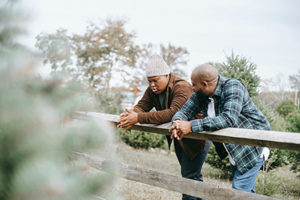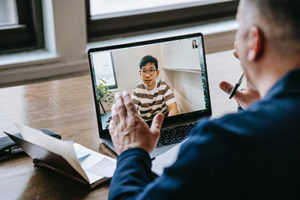Relationships with parents and non-parent adults can help youth find direction and meaning in their lives — giving them a sense of safety, community, and belonging. Mentors provide support, guidance and open up opportunities for young people to explore their interests, develop their skills, and succeed in meeting their goals. Mentors are often also in a good position to have important conversations with youth about healthy relationships and the risks associated with substance use, which are so important for young people entering and traveling through adolescence.
 Successful mentoring assures young people there is someone who cares about them, that they are not alone in dealing with day-to-day challenges, and makes them feel like they matter. Those doing the mentoring also benefit. They build important leadership, management, and creative skills while giving back to their community. The mentor’s relationship with the young person provides the mentor with a sense of purpose and meaning, which also delivers mental health benefits. Mentoring relationships are at their best when connections are made between a caring adult and a young person who knows that someone is there to help guide them through life choices. These relationships assist both the adult and young person to learn, grow, heal, and serve one another.
Successful mentoring assures young people there is someone who cares about them, that they are not alone in dealing with day-to-day challenges, and makes them feel like they matter. Those doing the mentoring also benefit. They build important leadership, management, and creative skills while giving back to their community. The mentor’s relationship with the young person provides the mentor with a sense of purpose and meaning, which also delivers mental health benefits. Mentoring relationships are at their best when connections are made between a caring adult and a young person who knows that someone is there to help guide them through life choices. These relationships assist both the adult and young person to learn, grow, heal, and serve one another.
Extended family and community members often naturally serve as mentors: a grandparent, aunt or uncle, older cousin, coach, teacher, or leader in a faith-based group, for example. When a young person doesn’t live near family, or has recently moved, actively connecting the child to a mentoring program can provide a wonderful and often life changing experience.
One of NH’s organizations with a formal mentorship system is The Friends Program, which serves a number of the state’s communities. “At The Friends Program we are passionate about finding caring mentors for children in need because we know this type of support works,” said Lily Wellington, Director of Volunteer Programs.
“A retired mentor called us last week to tell us that a child he had been matched with 33 years ago reached out to him recently. This mentee, now an adult, said, ‘I was searching for you just to say, I remember all the good that you put in my life. If you have given other children even ¼ of the memories that you gave to me as a child, just WOW!’”
Research shows that mentors play a powerful role in providing young people with tools to make responsible choices. Youth with mentors are more likely to attend and engage in school, and reduce or avoid risky behavior. They have lower high school dropout rates; higher college enrollment rates and higher educational aspirations; enhanced self-esteem and self-confidence; lower rates of depression and anxiety; and a decreased likelihood of initiating drug and alcohol misuse. (MENTOR, 2009; Cavell, DuBois, Karcher, Keller, & Rhodes, 2009)
Yet, the same research shows that one in three young people in the U.S. will grow up without a mentor.
NH organizations report that COVID-19 has created numerous roadblocks in mentor recruitment. Ordinarily mentoring programs would host in-person events to educate, support, and engage volunteers. The pandemic currently prevents groups from doing so .
 Organizations have adjusted mentoring practices to take place without in-person contact. One pandemic inspired initiative is “Reading with Friends,” a literacy program supporting students who are behind grade level in literacy due to COVID-19. The mentor and child each read a story and then correspond via staff-monitored email. This process allows the child to practice reading and writing and provides them with additional social and emotional connection and support. To date over 800 letters have been exchanged and lasting connections formed.
Organizations have adjusted mentoring practices to take place without in-person contact. One pandemic inspired initiative is “Reading with Friends,” a literacy program supporting students who are behind grade level in literacy due to COVID-19. The mentor and child each read a story and then correspond via staff-monitored email. This process allows the child to practice reading and writing and provides them with additional social and emotional connection and support. To date over 800 letters have been exchanged and lasting connections formed.
Many mentoring organizations report fewer volunteers and less financial support from donors since the pandemic began.
“Simply put, there is nothing more powerful in the life of an at-risk child than the positive regard of a caring mentor,” said Wellington. “Now is the time to invest in your community. With a small commitment of time and care, you too can to change a life forever.”
Mentor relationships provide rich, positive childhood experiences that help young people grow into healthy, resilient adults. Learn more about how mentoring contributes to all four of the Building Blocks of HOPE (Healthy Outcomes from Positive Experiences).
If you are interested in becoming a mentor or contributing in other ways, you can connect with Big Brothers, Big Sisters NH; The Friends Program; or The Circle Program or The Mayhew Program.

